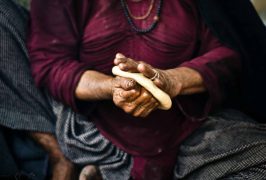This case concerned the constitutionality of under-inclusive affirmative action programs – meaning programs which provide benefits to some disadvantaged groups but exclude others.
LEAF intervened before the Federal Court of Appeal.
Facts
The Minister of Indian and Northern Affairs Canada refused to provide financial assistance to student members of the Micmac Nation of Gespeg under the federal government’s Elementary/Secondary Education Program. The Program offered financial aid to students who ordinarily live on reserve (or Crown land) but attend school off reserve.
The Micmac Nation of Gespeg is a landless band. They argued that their exclusion from the Program constituted discrimination based on their landlessness. The Federal Court dismissed the Micmac of Gespeg’s application for judicial review, and so they appealed to the Federal Court of Appeal.
Arguments
LEAF’s argument focused on the interpretation and application of s. 15(2) of the Charter to cases where a disadvantaged group challenged an affirmative action program for being under-inclusive. LEAF argued that the Supreme Court’s modified approach to s. 15(2), developed in R. v. Kapp, did not apply to under-inclusive affirmative action programs. LEAF also addressed the role to be played by “human dignity” in s. 15(1) equality rights analysis.
Outcome
The Federal Court of Appeal dismissed the appeal, finding that the exclusion of landless bands from the Program did not violate s. 15(1) of the Charter. The Court did not address s. 15(2) of the Charter.
LEAF is grateful to Joanna Birenbaum and Dianne Pothier, counsel in this case.
Download the factum here.
Read the Federal Court of Appeal’s decision here.
Our records are imperfect, but we are doing our best to update them – if you were involved with LEAF on this case but your name is not reflected here, please email us at [email protected].
